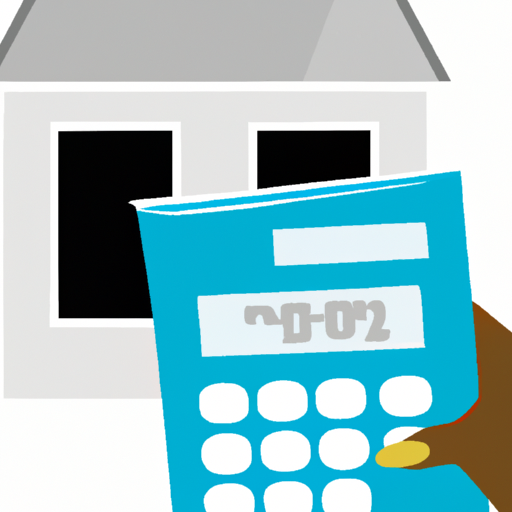TL;DR: This article emphasizes the importance of understanding your budget before buying a home. It also highlights the importance of evaluating a location, going through the mortgage process, getting a home inspection done, and considering potential resale value.
Buying a home is a major milestone for many people and families. This decision requires careful consideration and planning to ensure a successful and fulfilling purchase. Before diving into the world of real estate, there are a few key factors potential home buyers should be aware of. This article will provide valuable information and guidance on important aspects to consider before purchasing a home. This article will cover all the important information you need to make an informed decision when buying a home, from understanding your budget and evaluating the neighborhood to navigating the mortgage process and estimating potential resale value. Whether you’re a first-time buyer or a seasoned homeowner, this article will be a comprehensive guide to help you make the right choice and avoid potential pitfalls.
- 1. “Understanding Your Budget: Key Factors to Consider Before Buying a Home”
- 2. “Location, location, location: evaluation of the area and surrounding amenities”
- 3. “Navigating the mortgage process: basic tips for securing a home loan”
- 4. “The importance of a home inspection: what to pay attention to and how to avoid expensive surprises”
- 5. “Long-term investment: assessment of potential resale value and future market trends”
1. “Understanding Your Budget: Key Factors to Consider Before Buying a Home”

One of the most important aspects to consider before buying a home is understanding your budget. It is important to have a clear understanding of your financial situation and limitations before taking this important step. Here are some key factors to consider when estimating your home buying budget:
1. Income and expenses: Start by estimating your income and monthly expenses. Calculate how much money you have coming in each month and subtract your fixed expenses such as rent, utilities, groceries and any outstanding debt. This will give you a realistic idea of how much money you can set aside for your mortgage payment.
2. Down Payment: Saving for a down payment is a critical aspect of buying a home. Determine how much money you can allocate for this purpose. Generally, a down payment of 20% of the purchase price is recommended to avoid private mortgage insurance (PMI) and secure better loan terms. However, there are a variety of loan programs that allow you to lower down payments, so it’s important to research all of yours
2. “Location, location, location: evaluation of the area and surrounding amenities”

When it comes to buying a home, the old adage “Location, location, location” couldn’t be more accurate. Neighborhoods and surrounding amenities play a critical role in determining the value and desirability of a property. Before making a purchase, it’s important to carefully evaluate the location to make sure it fits your lifestyle and future needs.
One of the first things to consider when evaluating an area is its proximity to major amenities. Find the nearest grocery stores, schools, hospitals and public transport stops. Having these amenities close by can greatly improve your quality of life and make your daily activities more convenient.
Neighborhood safety and security are also vital factors to consider. Research the crime rate in the area and talk to locals to better understand safety measures. It is important to feel safe and comfortable in a new area.
Also, consider the potential for growth and development in the area. Are there proposed infrastructure projects such as
3. “Navigating the mortgage process: basic tips for securing a home loan”

Buying a home is a major financial decision that often requires a home loan. Navigating the mortgage process can be difficult and overwhelming, especially for first-time home buyers. Here are some important tips to keep in mind to ensure a smooth and successful home loan.
1. Check your credit score: Before applying for a home loan, it is very important to check your credit score. Lenders consider credit scores when determining loan eligibility and interest rates. A higher credit score means less risk for lenders and can lead to more favorable loan terms. If your credit score needs improvement, take steps to improve it before you apply for a mortgage.
2. Determine your budget. Understanding your financial situation is key when entering the mortgage process. Analyze your income, expenses and other financial obligations to determine how much you can afford to borrow. Consider not only monthly mortgage payments, but also additional costs such as property taxes, insurance and maintenance costs. Remember, it is important to be
4. “The importance of a home inspection: what to pay attention to and how to avoid expensive surprises”

When buying a house, one of the most important steps is a thorough inspection. This check plays an important role in making sure you’re making a smart investment and avoiding any potential expensive surprises down the road.
A home inspection is a comprehensive survey of the condition of real estate, conducted by a qualified specialist. This process involves evaluating the structural components, major systems, and overall functionality of the home. This helps identify any existing problems or issues that may need attention or repair.
During a home inspection, there are a few key areas to scrutinize. These include the foundation, roof, plumbing, electrical systems, HVAC systems, and overall structural integrity. The inspector will also check for signs of water damage, mold, termites and other potential hazards. In addition, they will evaluate the general maintenance and upkeep of the property.
By conducting a home inspection, you can get valuable information about the condition of the home. This knowledge allows you to do
5. “Long-term investment: assessment of potential resale value and future market trends”

When buying a home, it’s important to view it as a long-term investment. While you may have found your dream home, life circumstances may change that require you to sell your property in the future. Therefore, estimating the potential resale value and predicting future market trends becomes crucial.
Several factors are involved in determining a home’s potential resale value. Location is one of the most important aspects that can significantly affect the value of a property. Consider the neighborhood’s reputation, proximity to amenities such as schools, parks, shopping centers and transportation options. Homes located in desirable areas tend to hold their value better and increase in value over time.
In addition, the size and layout of a home can affect its resale value. A property with ample space and a functional layout is more likely to attract more buyers and command a higher price. Features such as the number of bedrooms and bathrooms, open floor plans and ample storage space are attractive to potential buyers.
Another factor is the condition and age of the property. AND
In summary, buying a home is an important decision that requires careful consideration of various factors. Understanding your budget is critical to determining what you can afford and avoiding financial stress. Appreciating the neighborhood and surrounding amenities is important to your quality of life and potential resale value. Navigating the mortgage process requires research and preparation to get the best home loan. Conducting a home inspection is important to avoid costly surprises and ensure the condition of the property. Finally, evaluating potential resale value and future market trends can help you make a smart long-term investment. By learning about these key aspects, you can make an informed decision and find the perfect home that fits your needs and your finances.
 Purex find
Purex find